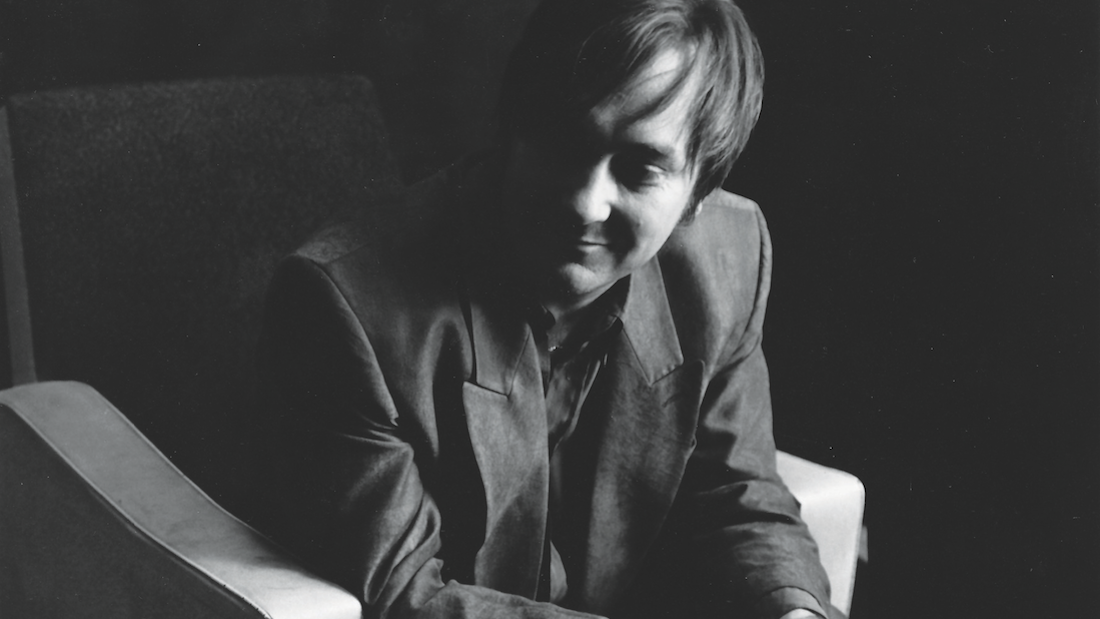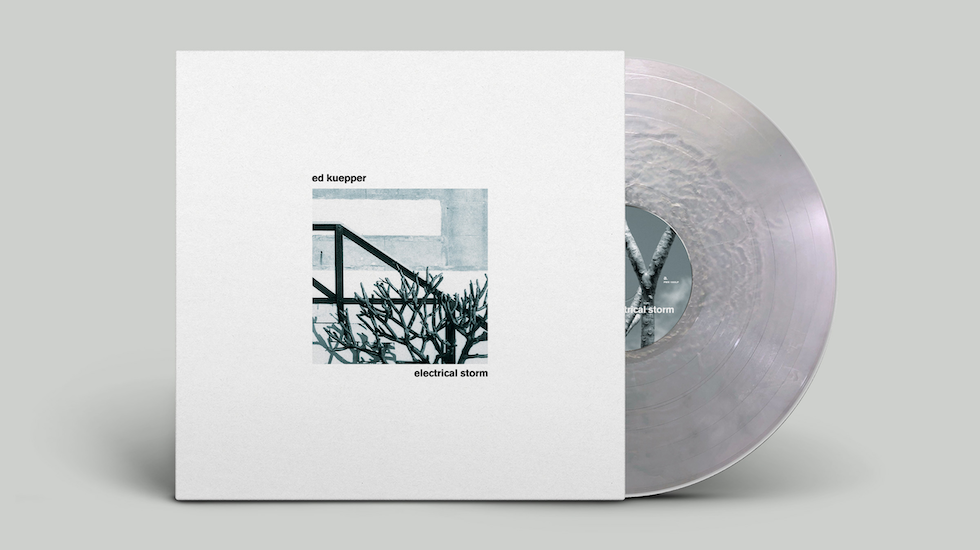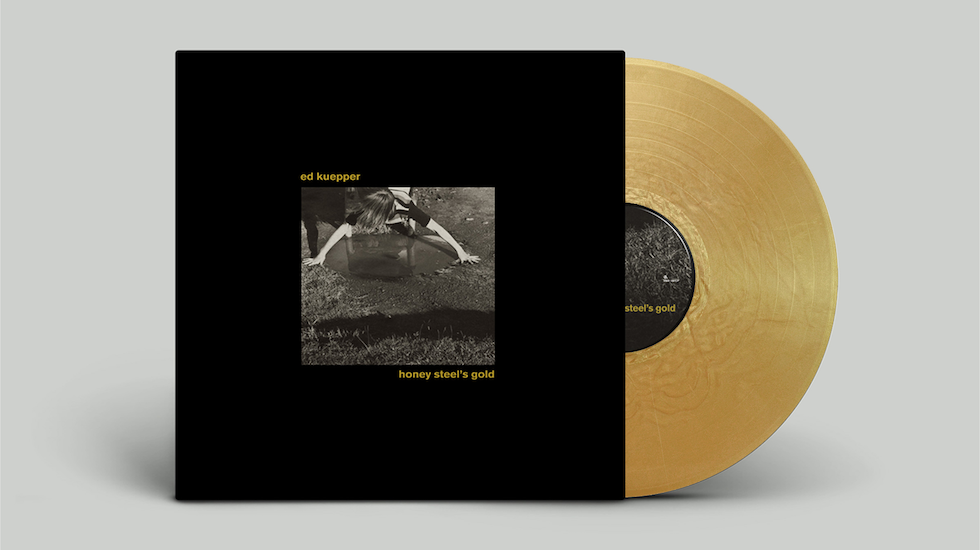
Everything Ed’s got belongs to you
Ed Kuepper’s landmark solo albums Electrical Storm (1985) and Honey Steel’s Gold (1990) have been remastered and reissued by Remote Control Records as part of an extensive back catalogue campaign. In celebration of their release, Kuepper will treat fans to the first live band experience of his solo material since 2009 on an extensive national tour, hitting Freo.Social on Wednesday, September 13. BOB GORDON spoke to Ed Kuepper about deep-diving into his prolific past.
In June the remastered reissues of your much-loved solo albums Electrical Storm and Honey Steel’s Gold were released. What was it like to bring those albums to a new life?
It was a weird combination of being sort of really distanced from them but once I got back to listening to them remembering them incredibly well. I’ve been pleasantly surprised with some things. It’s a funny thing to go back to things from that long ago because although you’re not really conscious of it, you do change.
It brings back that period of time; especially with recordings, they’re like a snapshot. They’re unique to that period of time. Hopefully they haven’t dated too much in terms of other people listening to them. They were all recorded quite quickly but it does bring back that time in the studio and around the recording, which is quite powerful in a strange sort of way.
They’d been out of print for a while, was reissuing them on your mind for a long time?
Well, all of my stuff was sort of out of print, I think, for the last 15 years or so. We’ve been trying to track down where the material is and we found some stuff in receivers in the UK and bits and pieces under people’s floors. Unfortunately, none of the original art was found but we had sort of had ultimate resources because I’m married to the cover artist.
Again it has been a really long time and it was never my intent that they should be out of print. It’s just the way it sort of happened, but it’s done and they’re back and we’re looking at reissuing more stuff as long as there is demand for it.
Did you work closely with mastering engineer Don Bartley on the recordings?
Yeah, Don remastered both the albums and he’s remastered all the next ones that we’ve got in the queue as well. Which is good. Don did the original mastering on Honey Steel’s Gold and I can’t remember if he did Electrical Storm originally… he possibly did. But he’s done a great job because the condition of the tapes was abysmal (laughs). He sent me photographs of them. I mean seriously, he said he’d never seen tapes in such bad condition. They were just covered in gunk and mould. You know, like thick, crusty mould. They looked disgusting, in fact, like something you wouldn’t want to touch.
It was amazing that he managed to kind of get them to work with only a couple minor, really tiny little dropouts on Electrical Storm which is unfortunate but that’s the way it is kind of thing. But he did a fantastic job and I’d say without qualification that the new masters are probably the best that they’ve sounded.
Can you walk us back to 1985 and the recording of Electrical Storm? Where was your head at and what was your intent? The Laughing Clowns had just ended and The Saints were pretty far back in the rearview mirror…
They sure were and I’d sort of run over a couple of them on the way (laughs). After the Clowns split, I’d finished the last Clowns album, which was called Ghost Of An Ideal Wife. The band had sort of broken up before that was completely mixed. So I asked Louis Tillett – who lived around the corner from me at the time – and we just started chatting about doing some things and he was like a big Clowns fan. He really kind of found them a very inspirational sort of act and I asked him to play piano on it and some harmonica. He did that and it was really good. He was really good to work with, there was none of the sort of issues that started to really undermine the relationship within the Laughing Clowns.
So when it came to doing Electrical Storm, the first thing I decided that I didn’t want to do was have a band again, like in terms of we all sit around, and I’ve got to think about it in terms of how I write the songs with particular people in mind and stuff. So I’d written these songs after the Clowns had split but one or two of them prior to the split that I didn’t present those songs to them because I just didn’t think that they’d work. So I did some home demos with a guy called Bruce Callaway and then went into a cheap studio that was nearby and basically put down the tracks with guitar and vocals. No click track, I just put them down. I didn’t want to play to a click track because I wanted there to be whatever natural movement is in my playing, in a way. My timing is reasonably okay.
So I had the songs up to a point and then asked Louis and his drummer – they were together in a band called The Wet Taxis, a Sydney outfit who were a sort of 60s psych rock experimental kind of group, I guess. And Nick Fisher came in and played the drums to the existing tracks which was brilliant. He just did such a great job. It’s a hard thing to do to put the drums on last.
So it was recorded fairly quickly. And it was mixed very quickly. I mean, the album was almost like a demo and I think it possibly has elements of that in its sound, which some people find a bit too confronting, but I think it’s got a sort of ragged kind of charm about it. It was all done at night, like the studio downtime kind of thing. The days when if you went midnight-to-dawn or something studios would normally not be sort of renting out that time and they’d offer a cheap deal. We did that over a couple of weekends.
The main thing was that I just wanted the core of the songs. I didn’t want to be writing with certain people in mind and I didn’t want to be writing parts for band members, the way that you have to when you’ve got a horn player or something like that. Because the Laughing Clowns weren’t improvisational or anything. There was a lot of input from all the players in the band, but the parts were written beforehand, and I just didn’t want to do that anymore. I guess the biggest thing was just that it was just tiring dealing with band politics and that kind of thing. It was liberating in a lot of ways, going solo.
Moving forth to 1990 and the release of Honey Steel’s Gold, by then you’d recorded an album with Mark Dawson as Today Wonder and also formed The Aints. Were you writing for a melting pot, or writing for the songs to have their particular destinations?
A bit of both. I’d always write but by the time it ticked over into the 90s I had the ability to start releasing quite a lot of stuff because my label at the time was also trying to set up a distribution company. So they wanted fodder for distribution, basically. So because I was such a cheap artist in terms of my recording budgets and stuff, it was sort of like, ‘sure do another record and we’ll put it out’. And because that was sort of there, I suddenly just took advantage of that and started writing a lot of albums. So something like Serene Machine, everything on that record was written for that record, kind of thing. In the same way Electrical Storm was.
Honey Steel’s Gold, interestingly enough, wasn’t done in that way. That has material that dated back almost 10 years earlier. Something like King Of Vice, the opening song on the album, was originally written for Laughing Clowns. I just never liked the way we played it particularly, so it never got recorded. And it was only by the time I got to Honey Steel’s Gold that it sort of dawned on me that what I had as a saxophone intro would actually sound really beautiful and much better if it was played on a piano. There were little revelations like that.
I saw you in a performance with Jim White (The Dirty Three/Cat Power) at Freo.Social in 2022, and you could often tell that songs such as Everything I’ve Got Belongs To You or The Way I Made You Feel really have significant meaning to people. What’s it like for you to see that in an audience?
Yeah, it’s always amazing to me when I see that. It’s gratifying and it’s moving. It touches me in a way that I’m possibly not mature enough, even at my advanced age, to be totally gracious about because it is so overwhelming sometimes.
You just know that some of these people have been coming to shows for decades and that is phenomenal. When I started out with The Saints I thought, ‘if someone remembers this in a few years’ time, that’ll be great’. Or ‘if some kid discovers a record in a second-hand bin that inspires them to do something that’d be really terrific’. In the same way that I’d find obscure records and think, ‘this is brilliant. This is really inspiring’.
To actually be doing it after all this time and seeing people respond like that is really touching. Even though the number of people I think that have been married and used Everything I’ve Got have not actually listened to those lyrics. And that’s okay, you know? I don’t want to spoil it for them (laughs).


